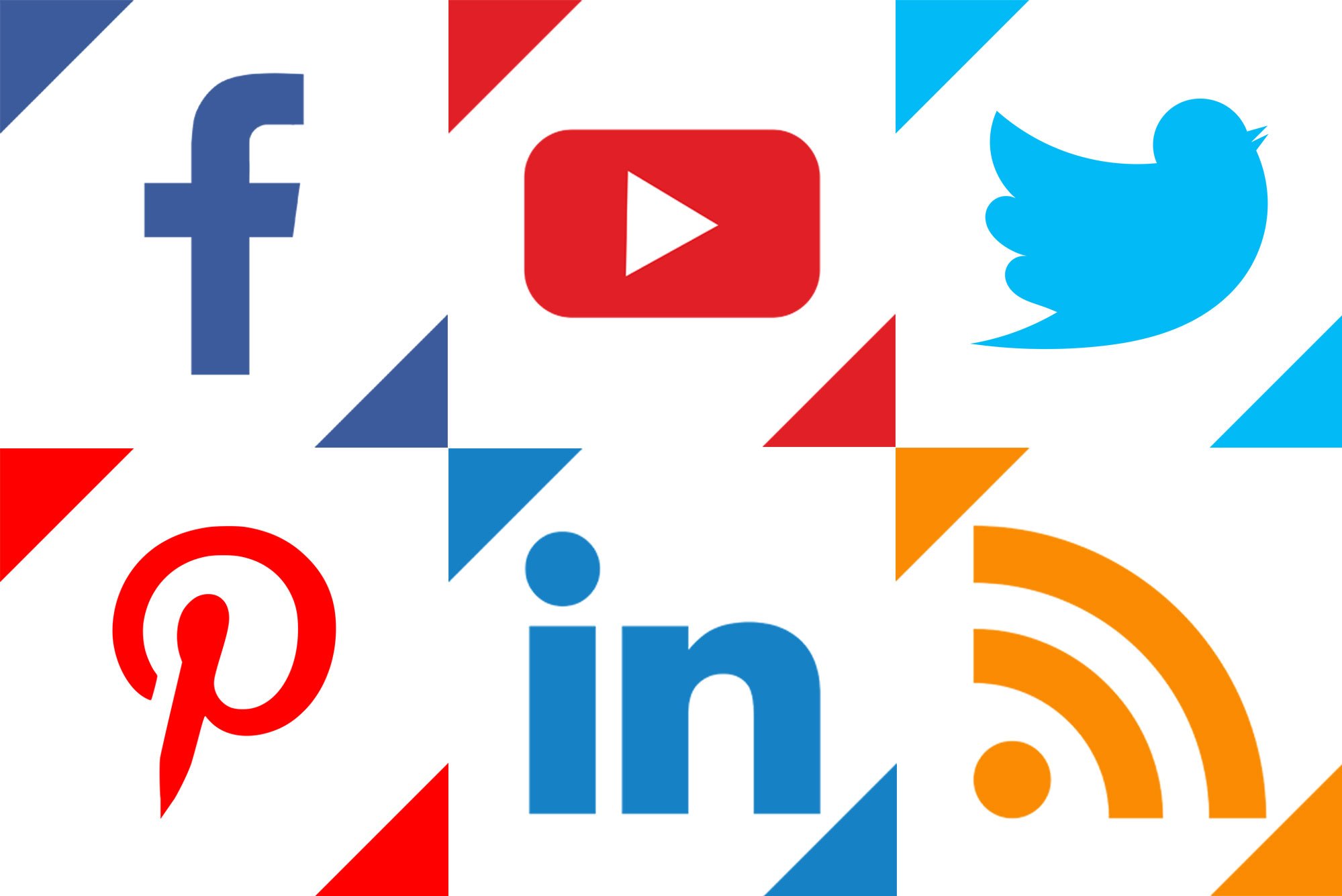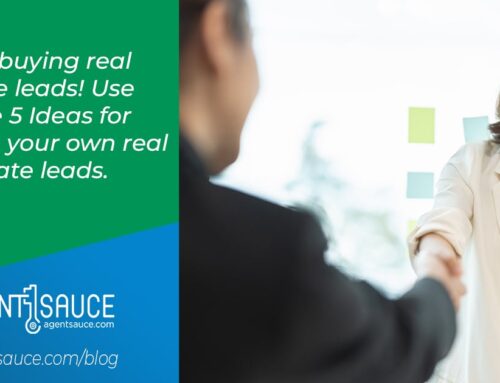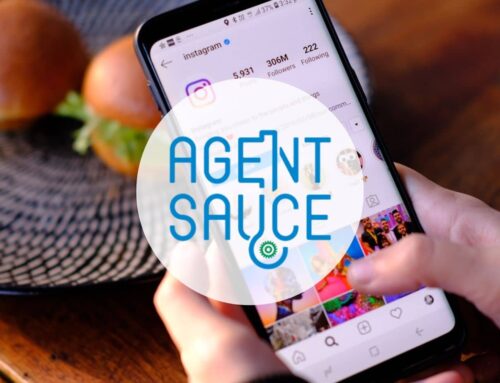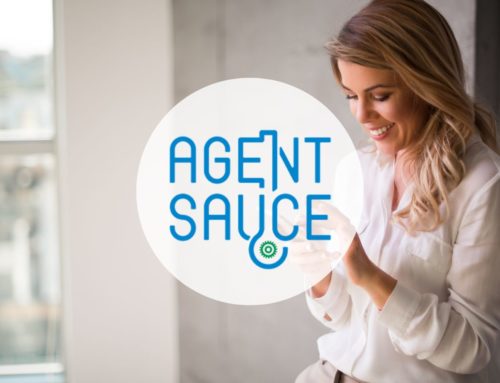Real Estate Social Media Marketing
Real Estate Social Marketing is a key component of any real estate agents marketing strategy. The hardest part for most of the agents that we work with is managing real estate marketing content across multiple channels. This is where we come in. The Agent Sauce social media marketing for real estate agents platform makes it easy for agents to manage all of their social media channels in one place by providing a newsfeed/rss to social media platform, custom content, and listing scheduler.
How the Agent Sauce Social Media Marketing for Real Estate Agents Platform Works
Activate Real Estate Social Marketing Channels
Using the Agent Sauce Real Estate Social Marketing platform, the agent authorizes to Agent Sauce to manage their social media channels. Agent Sauce is currently integrated and able to manage Facebook, Twitter, LinkedIn, Pinterest and YouTube channels.
Once an agent has authorized Agent Sauce to manage their social media channels they can select which channels get which content.
Add Real Estate Marketing Content
The agent can add multiple rss newsfeed urls to the system and select which social channels get the content from that newsfeed.
The agent can select the number of listings that they want posted to their social channels on a weekly basis.
Agent Sauce provides thousands of quotes and hundreds of wack holiday memes to select and have posted to an agents social media channels.
Agent Sauce Algorithm Schedules and Posts
Using a proprietary algorithm the Agent Sauce Real Estate Social Marketing platform determines the best time to post the content to the social media channels. The agent is able to change the post time and add comments to any post.
Watch Your Real Estate Social Marketing Go!
The social media channels are set, the content is scheduled all the agent has to do is let it post. Although if the agent wants to they can change the schedule or delete a post altogether. Depending on the media, new content will be created and posted on a regular basis.
Real Estate Social Marketing Podcast
Take Aways for Real Estate Social Marketing
- Listening: Make sure to monitor your real estate social marketing channels for mentions of your brand. Keep an eye on what people are saying about you and respond!
- Learning: Social media is a great place to ask questions and get responses. learn what your customers like and want through impromptu and informal surveying.
- Engagement: Interact with your social spheres! Get them talking to you so that it isn’t just a one way street.
- Promotion: Promote yourself and your product, but do it in a way that isn’t obnoxious.
Real Estate Social Marketing Show Notes
- Real Estate Social Marketing [00:10]
- What is Real Estate Social Marketing [2:00]
- ROI [3:30]
- Shifting technologies [7:00]
- Listen [8:30]
- Learn [11:45]
- Engagement [12:50]
- Promotion [20:00]
Real Estate Social Marketing Transcription
Adam Small: Good afternoon. This is Adam Small with the Agent Sauce Real Estate Marketing podcast. With me is Doug Karr of DK New Media.
Doug Karr: Hey.
Adam Small: How you doing today, Doug?
Doug Karr: Today’s a good day.
Adam Small: Is it?
Doug Karr: Yes.
Adam Small: It’s Friday. That’s always a good day.
Doug Karr: It is Friday.
Adam Small: So, listen. Today, I was thinking that we could talk about real estate social marketing.
Doug Karr: Ooh. Good topic today.
Adam Small: It’s a big topic. It’s been up for a long time. For a few years now, social media marketing has been a big topic for real estate agents because they want to know how to get into it, what to do, what to post, and that sort of thing. On top of that, social media marketing, social media, in general, has changed a lot over the last couple of years. When it first came out, Facebook, early 2000s, and then Twitter, those were really kind of the big boys and the only ones out there, but over the last five, six years or so we’ve had a big explosion in additional social media platforms. Some of them have come and gone and others are still here and some are big and some are very, very niche and don’t have a whole lot of reach, but are very specific.
I thought it’d be a good idea to do a broad overview of what real estate social marketing is, how to get involved in it. Not necessarily platform specific, although talking about certain platforms is never a bad idea.
Doug Karr: Right.
Adam Small: But just an overview, a generalization, as opposed to “for this platform do this” or “for that platform do that.” It gives an agent an idea of what type of thing they should be looking at instead of exactly what to do.
Doug Karr: I like that.
Adam Small: I think one of the things that agents really get caught up on is, “Oh, well. I gotta do this on Facebook and I’ve got to do this on Twitter and I’ve got to do this on Snapchat and I gotta do this on Instagram and, and, and, and, and, and.” By the time you’re done with it, they’re pulling their hair out because there are 50 different platforms and they don’t know what to do on any one of them.
Doug Karr: And worse, after a few weeks, they don’t see any results so they’re wondering why they’re doing it in the first place.
Adam Small: Right. They’re putting a ton of effort into it and all that. One of the things I tell people, in general, is start with one real estate social marketing effort. Get it good. Get it rolling. Make sure you’re effective at it and then work on incorporating the others and learning the nuances of each platform after that.
Doug Karr: Yeah. I like that.
Adam Small: Anyhow. Your thoughts?
Doug Karr: Well. Real Estate Social Marketing is a good topic because I think two things. One is it’s very buzzy.
Adam Small: Always a buzz term.
Doug Karr: You always have everybody in the industry speaking about “Why aren’t you on social media? What are you doing on social media?” I think the second part of that is that it’s been really frustrating to a lot of companies. Not just real estate agents, but even regular companies trying to figure out, “Wow, I am spending a lot of time here and I’m really not sure-”
Adam Small: “Where’s my return? Where’s my reward for all of this effort?” Because it can be a tremendous amount of effort. Some companies hire, not only a person to do it, but entire teams to focus solely on it. Of course, it depends on the size of the company, but still.
Doug Karr: I think the reality of it is that some companies are now figuring out that there isn’t a good ROI there and they are going back to some other, basically, investing time and effort in other areas. Now, the thing is you can’t abandon social media.
Adam Small: Right.
Doug Karr: We’ll talk about why.
Adam Small: Let’s talk about for a moment there, too. There isn’t a good real estate social marketing ROI. I think that that probably needs some qualification because what I think you mean is a financial ROI, a concrete financial ROI, whereas there’s probably always going to be, if you’re doing it well, there’s always going to be some sort of reputation brand ROI.
Doug Karr: Yeah. When I talk about real estate social marketing ROI I’m really talking, let’s say, as part of your goal to grow your network. Let’s say that you skip going to event in town and you skip sponsoring things out in town, and all you do is sit there and follow people on Twitter and Facebook and everything else. Regionally, you might know 100 people and then through Facebook and Twitter, maybe you up that where you know 1000 people. Expecting to get a better ROI on the people that you’re networked with online versus those people that you have met offline and in person is probably not going to happen.
Adam Small: Right.
Doug Karr: And that’s what I mean, is that a lot of people in the real estate social marketing industry made it out like this was almost a replacement or the new way of networking.
Adam Small: This is how you’re gonna make all your money.
Doug Karr: Yeah. The reality is is that a lot of marketers and real estate agents and we have home service providers, we have B2C companies, B2B companies are finding out that real estate social marketing is part of the overall solution in their marketing efforts, but they’re still doing those traditional things that worked really well for them. We always talk about social media and we’ll talk about four different ways to use it in this podcast, but we use social media to, obviously, build our networks and grow and things like that. But we’re always trying to get people back to the handshake. Back to the event. Back to the we can meet them in person.
Adam Small: Exactly, because the whole point is truly to get in front of them and have the opportunity to present your business in a way that makes you money, that has an actual financial return. It’s kind of funny because that’s one of the things, you said, that it’s kind of shifted from everybody trying to focus everything into real estate social marketing, getting back to some of the more, for lack of a better term, old school or-
Doug Karr: Yeah. Proven.
Adam Small: … proven techniques. That’s, I think, behind one the recent trends that we’ve seen in the last year or two with real estate agents is the drive back to print. For awhile there, it looked like a lot of real estate agents were just going to drop print altogether. It’s expensive and it’s hard to measure the ROI. Who’s looking at it as opposed to throwing it into the circular file? That sort of thing. In just the last couple of years, I’ve really seen an uptick of agents wanting to get back to print and throwing more money into print because it is something that works.
Doug Karr: Yeah. Well, I mean, ultimately, right. Everybody’s goal from a marketing standpoint is to capture people’s attention, build their awareness, drive them through to a conversion. With digital, with email and online and social media, there’s so much noise and competition out there. With traditional, so many people abandoned print that now when you go to … Today, I checked my mail and I had no ads in my business mail.
Adam Small: I checked our mail today, too, and again, no ads.
Doug Karr: The thing is if I had one ad in there-
Adam Small: It would have gotten 100% of your time.
Doug Karr: Exactly. Exactly. Whereas on email, I think I’m sitting at about 300 unread emails right now.
Adam Small: So, about 1/3 of a percent of your time, right?
Doug Karr: Yeah. Yeah. The thing is as that number gets higher I just keep delete, unsubscribe, delete, unsubscribe, delete, unsubscribe because it’s-
Adam Small: Zip right through them.
Doug Karr: … it’s so unmanageable. Real Estate social marketing is that thing too. Anybody listening has found that, you know, “Hey, I’m going to go check Facebook for a second.” Oop. Two hours later.
Adam Small: Exactly. Exactly. The reality of it is is that real estate social marketing does, in fact, have a place in your marketing efforts. Some of those places are probably listening.
Doug Karr: Listening is absolutely the first one and that’s just monitoring for your own brand, for your own name, you know, that people when they call out to you that you respond in a timely manner to them and try to help them.
Adam Small: On Twitter, they’ll do a hashtag, so if they do a hashtag with your brand on there, is having something that alerts you to that so you can then respond to it. Right?
Doug Karr: Yeah. Social media monitoring services, you know, if you have a unique name a lot of those services you can set your name and even your region. “If anybody says your name in this region, send me an email.” Google Alerts for –
Adam Small: Another way of doing that.
Doug Karr: … google.com/alerts. Google Alerts doesn’t have the full pipe of Twitter and Facebook, but it’s one way of if someone mentions you, you get alerted.
Adam Small: Exactly.
Doug Karr: So listening and it’s become an expectation by consumers, right. If I mention your company online, I really want you to come help me.
Adam Small: Right. What you’re really doing is you’re really calling for help. You see it all the time with people, whether it be Twitter of Facebook or whatever, they post something about the company. “Hey, I’m having trouble with this,” or “Hey, what are you going to do about this?” And the companies respond to that. Hopefully, they respond. If they don’t respond then-
Doug Karr: And then there’s more tactical approaches like Google My Business, ratings and reviews, they are going to impact your business if you don’t respond in a good manner. You’ve just gotta be listening so that you understand what your reputation is online and you manage that reputation.
Adam Small: Right. Right. Part of that listening, kind of the next piece of that is you’re learning through that. Right? So that’s another avenue of social media marketing for real estate agents. Right?
Doug Karr: Yeah. I mean, half of all business owners have found customers on Facebook, which is really an incredible number.
Adam Small: It’s amazing.
Doug Karr: I don’t go to Facebook and search real estate agents. This is I go to Facebook and I say, “Hey, anybody in my network know a really good real estate agent around town?” And I get 12 responses of people that love their real estate agent. Well, I want to make sure that I have a consistent appearance on Facebook and everything else so that when someone tags me in that post, someone clicks through to my page, they just see a great person that’s updating and everything else.
Adam Small: They don’t see a post from three years ago and that’s it? Is that what you’re saying?
Doug Karr: Exactly. Exactly. And then vice versa. For real estate agents and companies learning from Facebook is an incredible experience. We were talking to Dell, so there’s a huge company, obviously, and they do these multimillion dollar use cases where they test and they go get a focus group and they measure the response of the focus group and everything else. Well, they’ve abandoned all of that and now they just listen on Facebook and Twitter. And so the thing is is on Facebook and Twitter you guys can learn about your business. You can put a question out there and say, “Hey, for anybody with kids graduating out there in the next two weeks or in this year from college, I’m curious. Are any of those looking to buy a home?” You’ll get responses back like, “Heck, no,” or “Actually, yeah.”
There’s an opportunity to push questions out there to your audience to basically learn a little bit more about them and then you can write about what’s important and use that information to improve your experience online with them.
Adam Small: Cool. Cool.
What else?
Doug Karr: Well, the next one is engagement.
Adam Small: Engagement. Yes. Yes.
Doug Karr: Improving that experience. Engagement is one of those things I think, you’re talking to a guy that just gets in trouble on Facebook all the time.
Adam Small: Yes. I know. I know.
Doug Karr: But I do think that …
Adam Small: Well, let’s back up for a second. Let’s define engagement. Is engagement just responding to somebody or is it putting stuff out there that makes people want to respond to you?
Doug Karr: Exactly. Exactly. When we’re talking about engagement, we’re talking about interactions with people that make them want to do business with you.
I always tell the story, if you were to go to a networking event in town and as soon as you walked in you said, “Here’s my business card. Here’s what I do. I’m a great real estate agent. I’ve closed 46 houses this year. Here’s my phone number. 888.” People would go, “Oh, my God. Get that jerk out of here.”
Adam Small: That must be what I’m doing wrong.
Doug Karr: And the same thing goes online. If you’re that person online that just goes, “I closed another house today.”
Adam Small: And that’s all you’re putting out there.
Doug Karr: And that’s all you’re putting out there, there’s nothing engaging about that.
Adam Small: There’s no real value to it.
Doug Karr: Whereas, let’s say, you share a different story. You share a story about, I was fascinated with one lady that she stages houses. I met someone else who’s a real estate agent that will not sell a house unless you use a staging company.
Adam Small: Okay.
Doug Karr: Which is pretty incredible. Now, for anybody listening, I know real estate agents know what it is, but anybody else listening that’s, they’re going to rip out all your furniture and put in their own furniture, pictures, lights, everything else to make the house appear totally different. The whole idea behind it is if you have old oak furniture from Grandma and everything else, the house doesn’t look as inviting as if you had really expensive beautiful furniture.
Adam Small: Well, it’s really an attempt to allow somebody to walk in and say, “Oh, I could live here.”
Doug Karr: Exactly.
Adam Small: Is what it really comes down to.
Doug Karr: “I could picture this as the place that I would want to live.”
Adam Small: Right. Because what happens when you walk into a home that you’re looking to buy is if it’s really personalized to the seller, then it’s hard to say, “This could be my home.”
Doug Karr: Yeah. Exactly.
There’s a great topic, right? And it’s, hey, why you might want to go through the expense of staging your home when you sell. The real estate agent could go into detail about what kind of things they replace when they come in and then why there’s a return on investment on staging and why she’s able to close houses faster and for more money when she stages houses.
That’s an engaging conversation to have on social media.
Adam Small: It’s funny because it kind of goes back to a topic that we’ve talked about a number of times in that it’s all about providing something of value. We talked about that on our email podcast. When you’re emailing people, make sure that you’re providing something of value in those emails. The same thing goes for social media. Putting out there that, “Oh. You know, I sold another house. This is my 48th one this year.” That’s all fine and dandy, but if that’s all you’re doing there’s no value in seeing that because it’s the same post, it’s just a different number every time. Right?
Doug Karr: Right.
Here’s the thing is people think, “Well, that’s a lot of work. I gotta think of a hundred things to write.” Well, no actually, you don’t. If you subscribe to, and I’m sure real estate agents do, they subscribe to periodicals, they subscribe to newsletters, they subscribe to industry stuff.
Adam Small: Right. Right. Right.
Doug Karr: All they gotta do is go share that. They could say something like, I saw something with the housing market here regionally is way up. Well, that’s a great news story to share with everybody online that, “Hey, it’s a seller season right now.” You know?
Adam Small: Exactly.
Doug Karr: The real estate agent didn’t have to do any work. All they had to do was go out and put it out there to their audience.
Adam Small: Share that person’s link.
That kind of gets into another thing that when you’re doing your real estate social marketing, you need to be really careful of when you’re putting something out there, if you’re sharing links you’re all fine, generally speaking, because all you’re doing is linking back to somebody else’s content and you’re making a comment on it.
Doug Karr: Right.
Adam Small: Right? I have in the past been asked about, “Well, can’t I just copy that and put it on my page or send it as an email?” No. No, you can’t. The issue with it is a matter of ownership and copyright.
Doug Karr: And it’s icky.
Adam Small: Well, it is icky, but in this case, I think it’s just a matter of not understanding. Right?
Doug Karr: Yeah.
Adam Small: Even when they say, “Well, you know, what about with attribution at the bottom?” Well, copying the whole thing, even with attribution, is still a copyright infringement.
Doug Karr: It is actually. Yeah.
Adam Small: It’s not really fair use.
Doug Karr: Yeah. Fair use says you can use a portion of it. Like a quote …
Adam Small: A portion of it for commentary, whatever.
Doug Karr: … a couple of sentences.
Adam Small: The entire article is not fair use.
Doug Karr: Yeah. You’re going to get in trouble.
Not only that, it’s just that if I was a consumer and I read that article, let’s say on the Wall Street Journal, and then all of a sudden I see it pasted in your newsletter with no attribution, I’m just going to go “Ewww. This person is just stealing content and spitting it out.” That’s not a person that I want to work with.
Adam Small: That’s not the intent. That’s not the intent, but that’s kind of the way it comes across. So when you’re doing that, share the link and send them back to the other person’s page.
It doesn’t hurt you any at all. As a matter of a fact, it helps you because you seem like you’re knowledgeable in finding good interesting content. Just the fact that it goes to somebody else’s page doesn’t mean they’re going to get the business. It’s probably going to be you because you’re the one establishing authority-
Doug Karr: Perfect that you said that. [crosstalk 00:18:46] Yeah. That’s a lot of-
Adam Small: What’s the other one they’re establishing?
Doug Karr: I love that because you’re absolutely right. A lot of people say, “Well, yeah. But if I’m promoting somebody else’s content.” No. No. What you’re doing is providing value to your audience.
I would say this, even if it’s a competitor in town, if it’s another real estate agent and they released some incredible article, you are not going to lose your client by saying, “Well, go read this article that Jane wrote. It’s amazing and it really walks through the process that we use or whatever.”
Your consumer now says, “Wow. That’s really awesome. She provided me just exactly the information that I needed.”
Adam Small: You’re the resource now. You’re still the knowledgeable resource. It just didn’t happen to be yours. It’s just like going to the internet and searching for the answer online.
Doug Karr: Exactly.
Adam Small: The fact of the matter is is that you are still the resource. It really and truly is a great way to interact on social media.
Doug Karr: Then the last one.
Adam Small: Last one?
Doug Karr: Last one is promotion. I think there’s two sides to this. There’s, of course, just promoting your content online. I think you guys do a good job with this that you have automated some material that automatically gets published online and that’s a great idea. It saves a ton of time. People often respond to it and maybe catch you off guard. Go, “Whoa. I forgot that I even published that.”
Adam Small: It happens.
Doug Karr: It’s this great thing to keep active in front of people. With tools today, you can schedule post and you can schedule updates and you can do all kinds of crazy stuff that can get you ahead of that. So there’s the promotion side of just using real estate social marketing to promote stuff that you’re doing. I don’t care whether it’s philanthropy, whether it’s going out with your family for dinner because that shows a human side to your business and everything. Whatever it is, sharing that online is a great way to promote what kind of person you are, what kind of business you run, all of those things because consumers and businesses, again, are making more and more decisions about who they’re working with rather than what they’re buying. Who they’re working with is becoming more important and real estate social marketing provides you a way to show who you are.
So there’s that side and then there’s obviously the paid side. There’s paid promotion. Things like that I would say that if you’re, let’s say you’re sponsoring a regional fundraiser at the local fire station. Well, why not run a Facebook ad to people in your region, to let them know that you’re going to be there supporting that?
Paid is another one of those ways to, again, extend your network and bring them back to you.
Adam Small: Exactly.
One of the things that we do with paid is whenever we do a blog post, which we generally tend to hope is of good value, what we do is we actually boost the blog post itself. So we’re putting the content out on Facebook and Twitter to our audiences, in general, and then on top of that, we’re boosting it so that it reaches other people that aren’t necessarily following our page or seeing it or a friend of a friend that sees their interaction with it. It’s kind of a hybrid of purely promoting on your page, promoting content, as well as the ad. So you’re promoting a post as opposed to just an ad.
Doug Karr: The great thing about that, too, that you’re doing is you’re not sitting there trying to hard sell and making people make a purchase. We always talk to people about when people are going into real estate social marketing, when I go on Twitter or I go on Facebook, I don’t go … we were talking earlier that I’m trying to find some funky door lock. I don’t go to Facebook to go look for door locks. But I might go on Facebook and say, “You know what. Anybody with hanging barn doors, have you ever found a key lock scenario that really works well on there?” And then people will start that conversation and everything else.
The other side of it is that if I looked for door locks, now, Facebook ads are going to be showing me door locks. The reason why I’m saying that is that, let’s say you had done an article on staging and I was talking about staging online and I went and visited a couple of staging sites, your ad would most likely be shown to me-
Adam Small: When I boosted the post, right?
Doug Karr: … when you boosted the post. So ads are contextual in nature in Facebook that what they’re trying to do is match your interests and your recent activity with content that people are boosting out there. The great thing about that again is you weren’t trying to hard sell them. You were just trying to expose and provide value to them. I love that boosted post scenario because it’s not, “I gotta open house on Tuesday. Come to it.” Instead, it’s, “Hey, I wrote a fantastic article about running a successful open house and read that checklist here.”
Adam Small: Exactly. It’s yet another way of providing that value, that something of value, while establishing your authority at the same time. It’s not even the hard sell because these are people that are reaching it that are contextually targeted by the fact that they were searching for the staging article, that sort of thing. It’s not a sell at all. It’s just, hey, here’s my knowledge. Let me help you. And if you want to come talk to me about it afterwards, then that’s great. If it’s enough to convince you to say, “Hey, I really need to talk to this person because I’ve got to stage this house.”
Doug Karr: I want to make a point here too for anybody listening. We’re talking about social media here. When I talked about the open house, if I was on Google I might want to promote there’s an open house at this time and date and everything else, but if I’m on Facebook it might be-
Adam Small: It’s a softer sell. It’s a more valuable thing.
I’m going to ask you since you said it. How would I go to Google and say, “Hey. Here’s my open house.” I’d have to create a blog post and a page and all that stuff.
Doug Karr: Or paid ads.
Adam Small: Or paid Google ad. Right.
Doug Karr: That’s what I meant. I didn’t want people to say, “Well. Wow. I wouldn’t advertise an open house.” Well, sure you would.
Adam Small: Exactly.
Doug Karr: You want to market an open house to people who are searching for an open house.
Adam Small: Right. So in the context of what we’re talking about here today, it’s really about social media marketing for real estate agents, as opposed to the other marketing channels out there like Google Ads or-
Doug Karr: There’s tons of different ways to promote stuff online. We’re just talking specifically with real estate social marketing.
Adam Small: Right. Right.
Any final thoughts on real estate social marketing, Doug?
Doug Karr: Well, just that. I think the hard problem that marketers and real estate agents have right now is that consumers and businesses both expect you to be on social media. It’s not about whether real estate social marketing works or doesn’t work. It’s about whether or not your audience expects you to be there or doesn’t expect you to be there. The problem that all of us have today is that we have to be there. That’s the expectation from a business standpoint. If you’re not there, your competitors will be there.
Yes, it’s tough. It’s more time in the day. It’s all of these things and you’re going to question whether it’s worthwhile or not, but over time, you get really good, you get kind of a knack-
Adam Small: You fall into a rhythm.
Doug Karr: You fall into a rhythm and all of a sudden you go, “Wow.” For real estate agents, honestly, right? If you sold one house off of a connection on Facebook, that might have paid for that time for the entire year.
Adam Small: Right. Exactly.
Doug Karr: That’s the way I would look at it.
Adam Small: Cool.
Well, and just to kind of recap. The things that you need to look at when you’re doing real estate social marketing is listening, learning, engaging, and promoting.
If you have any questions, feel free to contact us at agentsauce.com, info@agentsauce.com.
Thanks for joining us today and thanks, Doug, for joining us today. You guys have a good day.







